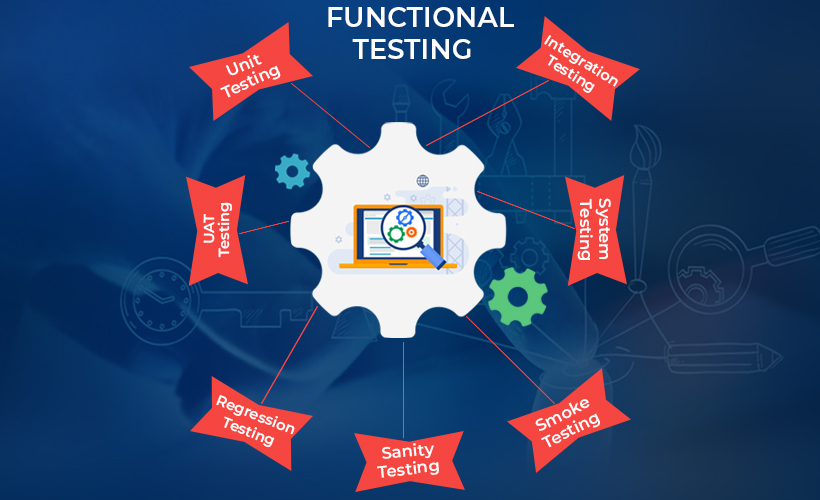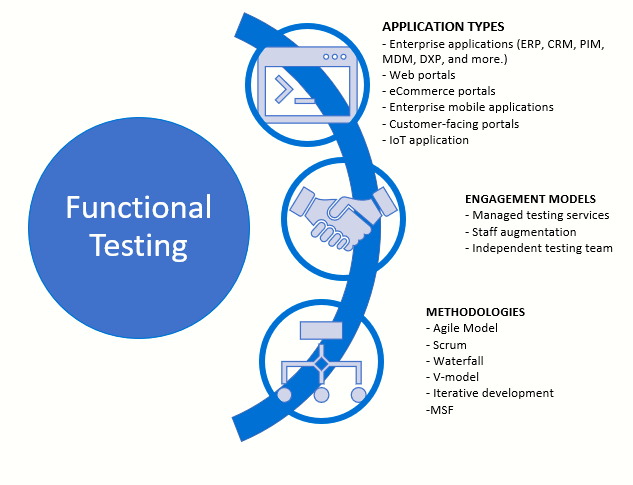Functional Testing
Get True Functional Performance at Speed

Get True Functional Performance at Speed

Get True Functional Performance at Speed
The ever-changing and evolving functional requirements, architectural and infrastructure best practices, and continuous delivery are increasingly driving changes in quality assurance and testing services. Functional testing, being a crucial part of the SDLC process, has now transformed and more matured, plus it applies to all granularity levels. But enterprises concern that the costs of functional testing exceed the benefits.
Minds Task Technologies’ functional testing services help you make functional testing cost-effective and value-driven. We offer complete functional testing for building, testing, and deploying your application or software system from the business of speed and reliability. Our expert QA team has years of operational experience and domain knowledge to execute all types of functional testing. We offer a diverse range of services that are mainstream and most required by organizations such as:

Requirement-Based Functional Testing :— Perform test and validate against all the functional specifications
Business Situation-Based Functional Testing :— Check, test, and validate how the application will be perceived from a specific business scenario perspective.
End-to-End Function Testing :— Conduct full-fledged tests and verify application functionality, complete application workflows, business requirements, and data storage in the database.
Rigorously test individual components, modules, and different code units of the application to achieve the required functionality output. Our QA engineers and developers perform tests and validate each unit or software module against the required parameters. We perform unit testing in both manual and automated ways to fix errors/bugs early in the development cycle at reduced costs.
Ensure that not just individual components of the system work perfectly but also work coherently when integrated to achieve the required business results. We perform integration testing under different integration scenarios to validate the functional, performance, and reliability of the system. Our expert QA team carries out both positive and negative integration testing.
Test and evaluate your complete application in aligned with the specified requirements, compliance, and business scenarios. We check the end-to-end workflow, functionalities, and behavior of the system and validate whether it performs as per the end-user expectations. Our system testing services include both functional and non-functional testing.
Detect errors, bugs, or defects in the early development stage of your application. Our smoke testing services improve the quality of the application, minimize the risk of failure, and saves test efforts and development time. We perform both manual and automated smoke testing to maintain the system's correctness and ensure its build stability.
Save time on identifying defects in the core functionality of your system or application. We verify all the significant and vital functionalities of the application so that you can proceed with more stringent testing. We also offer customized sanity testing services like checking only the entire system's specific components or applications. Our goal is to save time for the rollout of regression tests.
Re-execute and reverify existing functionalities if your application goes under code-level changes. Our regression testing ensures that your application works according to the specifications when new code is added, bugs are fixed, existing functionalities are enhanced, or new integrations occur. We perform corrective, selective, progressive, and complete regression testing for the desired outcome.
Promote your application or system to the production environment with confidence. We expose your system/application under all the acceptance criteria such as functional completeness, usability, performance, and timeliness. We use best practices, advanced tools, and practical techniques to maximize your revenue and enhance your brand reputation.

Our QA specialists and testing engineers help you understand the everyday challenges of testing and how functional testing services can be utilized effectively in improving your applications. We take a holistic approach to comprehend and harmonize with your application strategy, the operating environment, and the organizational structure. We have helped many clients across different industry verticals with our functional testing services to get high-quality systems or applications within the defined time and budget.
Schedule a free consultation with our team to discover how we can help!
Functional testing is a software testing category that tests and validates the application or software system against the desired functional specifications or requirements. Functional testing assesses each function of the software application by feeding the appropriate and correct input and verifying the output against the desired functional requirements of the business. Referred to as black-box testing, it aids in testing the system’s features or functionality. The results of a functional test can normally be stated as a simple “pass” or “fail”. Functional testing can be performed manually or using automation tools.
Functional testing helps in verifying what the system or application is supposed to do. Functional testing comprises simple methods and steps to execute the test cases. It primarily focuses on mainline functions, basic usability/interfaces, accessibility of the system for the user, and check for error conditions. Moreover, functional testing checks UI elements, APIs, Database, Security, Client/Server interaction, and other components. The testing phase includes the unit, component, and integration systems. However, functional testing requires in-depth customer and system/application knowledge and domain knowledge to develop test cases and find critical defects.
Functional testing has many categories, and these can be used based on the scenario. The most prominent types of functional testing include:
The first step is to choose a PIM system that meets your needs. Once you have selected a PIM system, you will need to install it and configure it. You will also need to import your product data into the PIM system.
A software system may be defective due to design/UI issues, database errors, code-level bugs, or other factors. Certain system states are exposed to defects, usability issues, and other functionalities issues, resulting faults/errors in the system’s development. Failure in functional accuracy usually results in reduced system reliability, usability, security, and availability. Functional testing is performed in all testing phases, such as unit testing, component testing, integration testing, and system testing. It verifies and validates functionalities and specifications as part of software development. It performs various activities under verification and validation during different SDLC stages to speed up the release cycle at a defined cost.
The principles in testing are essential for successful execution. They form the basis of methods, techniques, methodologies, and tools. They provide better understanding, in-depth evaluation, and higher success rate. Main principles of testing include: